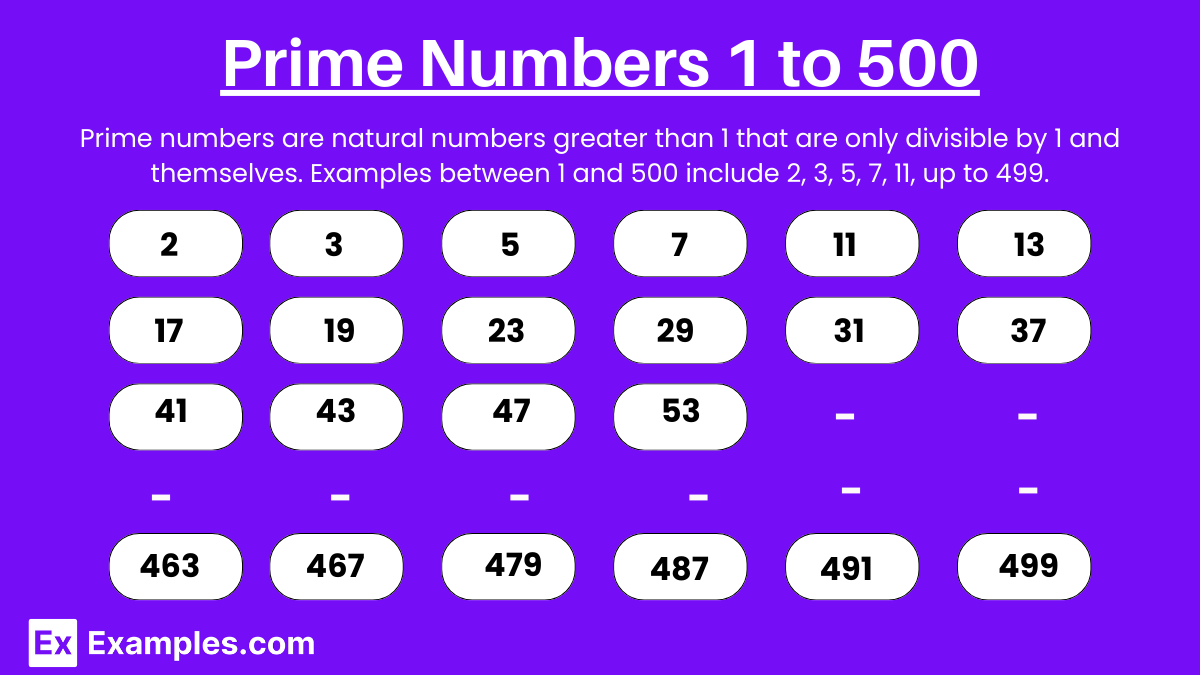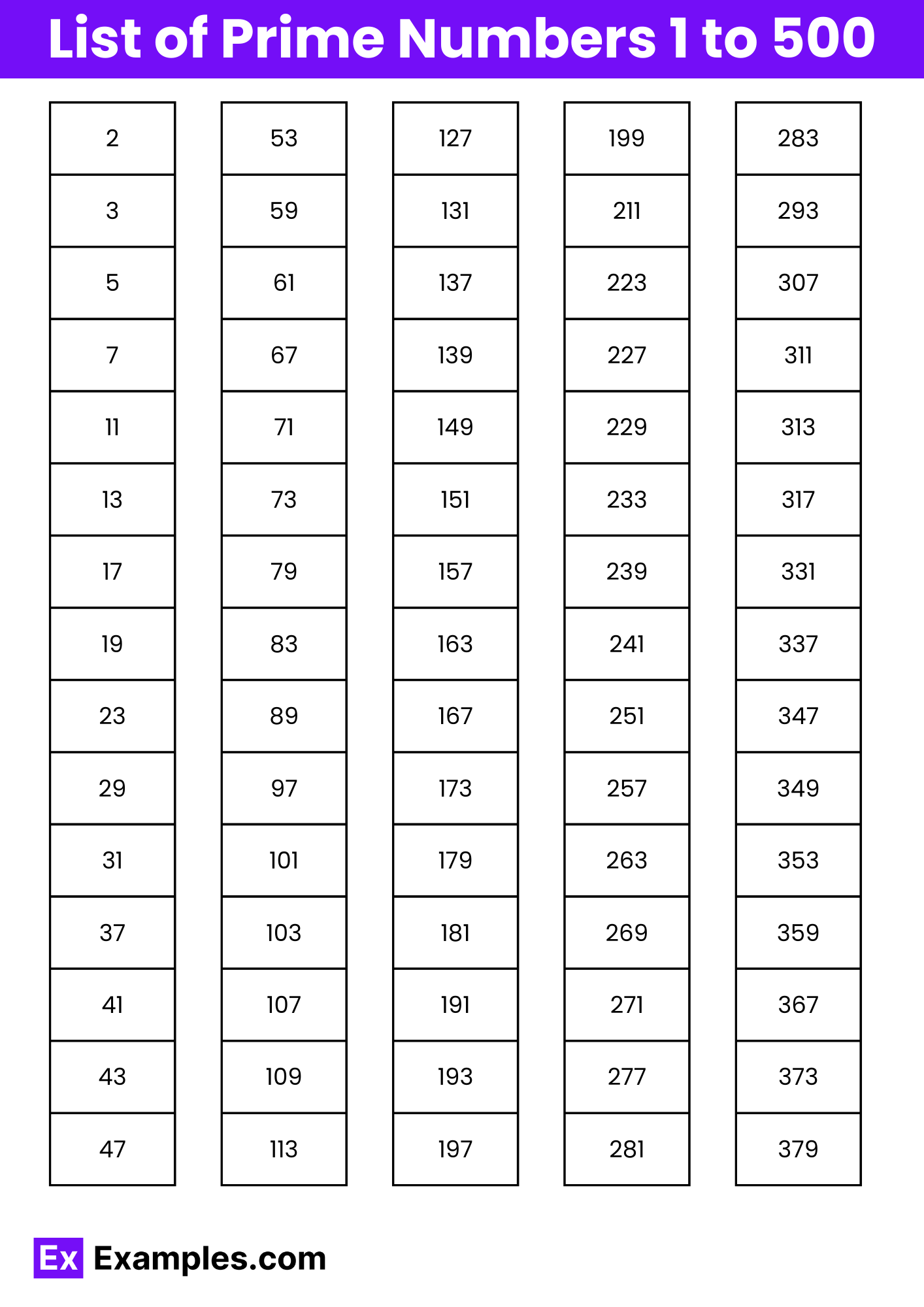Which of the following is a prime number?
123
131
144
156


Prime numbers are natural numbers greater than 1 that have no positive divisors other than 1 and themselves. In other words, a prime number is only divisible by 1 and the number itself without leaving a remainder. This characteristic distinguishes prime numbers from composite numbers, which have additional divisors. The prime numbers between 1 and 500 include 2, 3, 5, 7, 11, and continue up to 499. Understanding prime numbers is crucial in various fields of mathematics, including number theory and cryptography. Identifying prime numbers within a given range helps in solving problems related to divisibility, factorization, and the distribution of primes.
Download List of Prime Numbers 1 to 500 in Pdf

Download List of Prime Numbers 1 to 500 in Pdf
| Prime Numbers | Prime Numbers |
|---|---|
| 2 | 233 |
| 3 | 239 |
| 5 | 241 |
| 7 | 251 |
| 11 | 257 |
| 13 | 263 |
| 17 | 269 |
| 19 | 271 |
| 23 | 277 |
| 29 | 281 |
| 31 | 283 |
| 37 | 293 |
| 41 | 307 |
| 43 | 311 |
| 47 | 313 |
| 53 | 317 |
| 59 | 331 |
| 61 | 337 |
| 67 | 347 |
| 71 | 349 |
| 73 | 353 |
| 79 | 359 |
| 83 | 367 |
| 89 | 373 |
| 97 | 379 |
| 101 | 383 |
| 103 | 389 |
| 107 | 397 |
| 109 | 401 |
| 113 | 409 |
| 127 | 419 |
| 131 | 421 |
| 137 | 431 |
| 139 | 433 |
| 149 | 439 |
| 151 | 443 |
| 157 | 449 |
| 163 | 457 |
| 167 | 461 |
| 173 | 463 |
| 179 | 467 |
| 181 | 479 |
| 191 | 487 |
| 193 | 491 |
| 197 | 499 |
| 199 | |
| 211 | |
| 223 | |
| 227 |
Prime numbers from 1 to 500 form a critical foundation in mathematics, showcasing numbers that are indivisible by any other than 1 and themselves. These numbers, such as 2, 3, 5, 7, 11, up to 499, play a significant role in various mathematical theories and applications, including cryptography, number theory, and computer science. Their unique properties make them indispensable for understanding the structure and behavior of numbers. By studying prime numbers within this range, one gains deeper insights into the nature of integers and the fundamental principles that govern mathematical operations and problem-solving techniques.
Text prompt
Add Tone
10 Examples of Public speaking
20 Examples of Gas lighting
Which of the following is a prime number?
123
131
144
156
Identify the prime number from these options:
200
211
222
234
Which number is a prime number?
257
260
268
272
Find the prime number among the following:
300
307
315
322
Which of these is not a prime number?
373
379
380
389
Select the prime number from these choices:
421
425
430
435
What is the prime number in this list?
487
490
495
499
Which of the following numbers is a prime number?
503
510
520
525
Find the prime number from this selection:
541
550
555
560
Which number is a prime number in this set?
587
590
600
612
Before you leave, take our quick quiz to enhance your learning!

